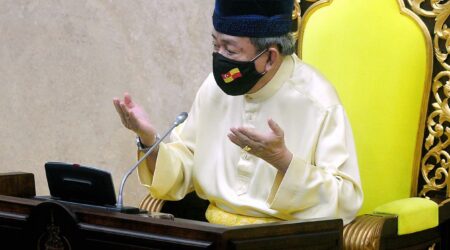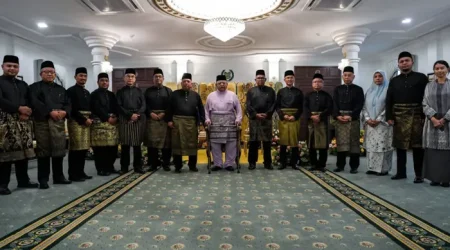Najib’s legal team welcomes announcement on legal provisions for house arrest
PETALING JAYA: Legal provisions that allow house arrest have always been in the country’s legal framework, says Muhammad Farhan Muhammad Shafee.
A lawyer in former prime minister Datuk Seri Najib Razak’s legal team, Muhammad Farhan welcomed the announcement by Minister in the Prime Minister’s Department (Law and Institutional Reforms) Datuk Seri Azalina Othman Said on the issue.
“The law minister’s clarification reinforces what we have consistently asserted since the addendum issue emerged, that provisions for house arrest have always been part of our legal framework since the enactment of the Prisons Act in 1995 and are therefore enforceable immediately,” he said when contacted yesterday.
Muhammad Farhan was asked to comment on Azalina’s remarks that house arrest is allowed in Malaysia and no new laws are needed to be created for that purpose.
The Federal Court has fixed March 24 to hear the Attorney General’s application for leave to appeal against the Court of Appeal’s decision that Najib can commence judicial review proceedings to allow him to serve the remainder of his jail term under house arrest.
On Jan 6, the Court of Appeal ordered for Najib’s judicial review application linked to the addendum order to be remitted to the High Court for a hearing on its merits.
Ravi Chandran Subash Chandran, who is the Bar Council’s criminal law committee co-chair, agreed with Azalina’s view that the law allows the Home Minister such powers to declare any house, building or space as a “prison”.
“Yes, it is true that the minister has the power, but that does not make it a house arrest; it is still considered to be in prison,” he said.
He also pointed out that Section 43 of the Prisons Act empowers the prisons commissioner-general to release inmates on licence, subject to certain conditions.
“Perhaps this will be the closest regulations that will allow a person to be put under house arrest,” he said.
Constitutional expert Assoc Prof Datuk Dr Wan Ahmad Fauzi Wan Husain argued that the provision mentioned by Azalina is to declare a place as a prison.
“This is actually not for house arrest. House arrest must be provided in statutes providing offences and punishment, while for prisons it must be subjected to the rules and regulations as a prison,” he said.
However, under Article 42 of the Federal Constitution, the Yang di-Pertuan Agong, on the advice of the Pardons Board, may grant home arrests within a period of sentence, provided such procedure must be expressly stipulated or prescribed in the decision, he said.
“That home arrest may fall under respite as provided by Article 42,” he added.
Senior lawyer Mohamed Haniff Khatri Abdulla said the Home Minister is allowed under the law to declare a house or building as a prison.
“But of course there are rules that come with it,” he said.
Criminal lawyer Joshua Tay said there is nothing unconstitutional about declaring a building or a place as a prison, and it is permissible under the law.
“So, yes, technically, Najib can be placed under house arrest given that the conditions under the Prisons Act are met,” he said.













Leave a Reply